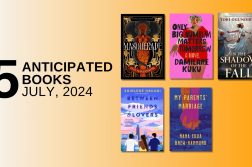**This post has been updated to include recent contribution.
I saw a post on Facebook sometime ago that got me probing into the different ways people see writing. The post was stating clearly that you either can write or can’t, in which case you should stop. From the tone of the post, I could taste the raw disgust the person felt at that moment. And I think I’ve been there too. But it is interesting that some people who have made you feel such disgust at a time somehow turn around to have gotten their craft together later. So I went online asking a few people – is writing purely art, talent based or work of practice? Here are the responses so far:
Narrowing the generic ‘writing’ down to literary writing (which I believe is being referred to here, since there is mention of ‘art’ in relation to it), writing in all its forms and creations of literature is primarily art, before anything else, writing (literature in this sense) serves an aesthetic purpose, its initial intention is to bring pleasure to the senses of its participants on both ends – writer and reader, and everybody in between.
But it cannot afford to be “purely art”; writing bears too much responsibility, as does the writer, to explore, to question, to find, to force, push, not just create (which would make it purely art, and thus bland); I think this responsibility writing (art) bears gives it its colour, its core, its intrinsic purpose, gives it (and its creator) the fulfilling element that every piece of art needs to give it substance, to remove it from the realm of abstractness, into something that can be held, touched, felt, makes into a corporeal thing that a reader can fold and keep in the pocket of his heart.
Then, there is talent, and there is practice; these are two ends of a broad spectrum. At ‘talent’, some have it in them, a natural ability to do; at the other end of ‘practice’, others work hard at it, put in enough effort to push towards talent.
Shift it from left to right, and back, along this spectrum, what holds all the pieces together is that little thing called art; hence at the end of the day, writing is art, but cannot be said to be “purely” it.
—- Olubunmi Familoni (@OFamiloni), Author – Smithereens of Death
Writing is an art. That is an indubitable fact. While it merely requires rudimentary reading comprehension skills, stringing words coherently into phrases, sentences, paragraphs and stories of a substantial length is no mean feat.
Should art be boring? Not necessarily, but if you are unable to educate, entice or enthrall your reader then perhaps you lack talent, creating essentially poor art. But maybe talent itself is relative.
Practice has been proven to improve talent and art infused with talent is generally pleasing to the senses. Practice, I think, needs something to work with and that is most likely a hint at talent, passable if not tangible. But art is relative and its aesthetics, largely dependent on the beholder (critics’ credo aside).
Although there are tested criteria for assessing what qualifies as good or bad writing, individual influences and personal history have shown that even our perception of talent –taste – like art, is relative.
A simple, direct answer to your question would therefore be that talent cannot be forced: Writing is art borne out of talent and sharpened with practice.
—- Derin Ajao (@theveryderin)
I must first offer my apologies: I shan’t be quoting any writers or theorists, great or middling, dead or alive. And the reason is clear enough.
I would re-word the question slightly (in my head) because writing is an art. Full stop.
Now, if you’re a “purist”, there are two mutually inclusive avenues to writing: you either have talent or you can pay through your nose for an MFA (or an Ake Festival masterclass). Or you can combine both, to devastating effect. Practice, writing over and over again, (hopefully, not always the same thing), makes… well, you know how that movie ends.
Or else, you can just create a blog and presto, you’re a writer!
P.S: In my (obscure and unpublished) experience, reading, also, is writing. But don’t take my word for it. Because.
—- Kayode Faniyi (@Il__Duce )
I used to think that writing was purely a product of talent; either you had it or not, no grey areas. Now, though, with a little more life exposure and a few more years behind me, I know that people write, and write well, for all sorts of reasons.
Good writing is born of passion. How this passion comes about is irrelevant; whether by natural ability, a love for the Arts, or consistent, determined practice.
In the long run, everyone has a story they want to let out, and the restlessness of having to contain that story can often spill out quite beautifully on paper.
I see writing as a bit of art, pure talent and practice and will limit the scope of my response to writing as a medium of conveying literature, e.g. novels, magazines, etc. in text.
Writing in this sense is first a science.
This is because the writer needs to:
Pick his readers, identify what themes may interest them through a careful study of their history, culture, lifestyle, age brackets, education, etc;
Decide in what medium to present his material, whether through paper books, audio books, PDF, ebooks, etc.
Decide his language, diction, etc.
All of these factors require scientific processes of observation, data collection, etc. to help the writer make important decisions before actual writing begins.
Writing is an Art.
This is the ability to beautifully capture emotions in text or even the ability to evoke these emotions. As a talent, it is the gift to skillfully use all the information gathered about the readers, and the writer’s imagination to deliberately create a work of literature that does to the readers exactly what the writer wants.
But, what science, art or talent grows without practice, the deliberate effort to keep improving at something through repetitive activities?
To succeed as a writer, one needs to study writing as a science, appreciate it as an art, possess a talent for it, and practise, always practise.
Although it may be possible to have writing categorised as art, talent or work of practice, I think it is safe to agree that it is a blend of all three and more.
—- Ewewale (@ewewale)
Is cooking purely art, talent based or work of practice?
I have tasted meals in this life of mine. Party jollofs that end but convince you to eat your tongue along. Jollofs that you audibly, verbally can give kudos to. And jollofs, that by dint of courtesy, I am forced to down like medicine with sips of coke.
Art is too amorphous a word. I once had my ipako on a rug staring up at a table top made of glass with ash from marijuana roaches tapped onto. I wrote a beautiful poem about a cumulus of ashes of hashish.
Someone painted his pain on canvas. I thought it was trash. My pedestrian pals with taste for the pedestrian thought it was trash. It was art. But couldn’t act its art.
Sex could be good by how long. For sentimental reasons coital bouts that leave you a-gasp might be demoted to rungs beneath one contrived in love. Different strokes for different folks.
Hallelujah.
— Roland Akpe (@Bloody_Voyeur)
You can join this discussion by sharing your thoughts in the comment.


